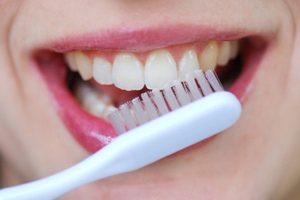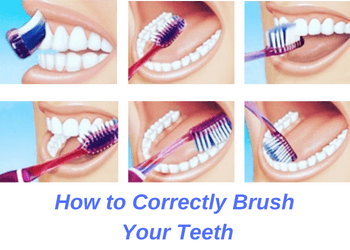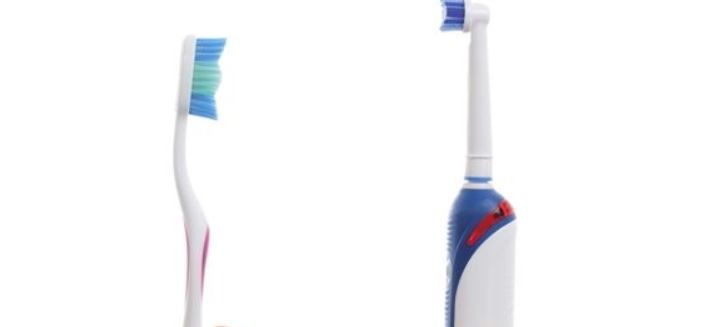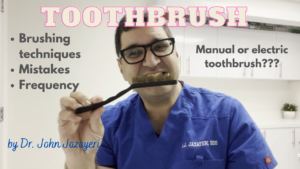Why is brushing your teeth so important?

Poor brushing puts you at risk of developing cavities, gum disease, and even dental infections
Brushing your teeth removes food particles from teeth surfaces to keep your teeth clean and healthy. If you don't brush your teeth properly, food and plaque gather on the teeth' surfaces. Gradually, these buildups start to calcify and form a substance known as tartar or calculus. Tartar is very hard and sticky, making it impossible to remove by yourself. Additionally, tartar harbors harmful bacteria which produce acidic byproducts. It's this acid that's responsible for destroying your teeth, gums, and even jawbone. Without proper brushing, you're at risk of developing cavities, gum disease, and even dental infections.
What is the correct way to brush your teeth?

Most dentists recommend brushing your teeth using the Bass technique. Start by holding your toothbrush at about 45 degrees against your teeth surfaces. Brush using gentle, circular strokes by pressing your toothbrush firmly against each tooth surface. Apply enough pressure to remove plaque particles, but don't press too hard to cause damage to the teeth. Once you’ve finished brushing each tooth surface, re-position the toothbrush onto the next one. Continue until you’ve covered all teeth surfaces. Don't forget to brush the inside surfaces against your tongue as well as the teeth all the way in the back of your mouth. For an even cleaner mouth, brush your tongue at the end.
How long should you brush my teeth?
We recommend that you spend about 2 minutes brushing your teeth thoroughly. It's important that you spend enough time cleaning all teeth surfaces. Brushing too quickly won't give you good results. It leaves plaque on teeth surfaces and exposes you to developing cavities and/or gum disease. Ideally, you want to brush your teeth twice a day for about two minutes at a time. You may have to brush even more if you have a high risk factor, such as:
- You consume lots of sweat, chocolates, and/or sodas
- You suffer from dry mouth
- You're a heavy smoker (or vaping)
- Advanced gum disease
- Crooked teeth with tight contacts that tend to trap lots of plaque and tartar
- Tons of existing dental work in your mouth, particularly crowns, bridges, veneers, and dental implants
- Medical conditions that adversely affect oral health such as uncontrolled diabetes, Sjögren's syndrome, GERD, etc.
Is an electric toothbrush better than a manual brush?

Electric toothbrushes perform the oscillation motion for you
Both manual and electric toothbrushes can be very effective as long as you use them properly. The biggest advantage of an electric toothbrush is that the brush itself performs the oscillation motion automatically. This makes it easier to brush your teeth by cutting down on the effort required to brush daily. However, you still need to pay attention to covering each tooth surface. Regardless of which toothbrush you use, you still need to brush for the recommended two minutes daily and apply the right amount of pressure when brushing your teeth.
What type of toothbrush do you recommend?
Both electric and manual toothbrushes are fine as long as you use them properly. Be sure to use a toothbrush with soft bristles. Hard bristles are abrasive and damage your teeth and gums. Also, be sure to switch out your toothbrush or the brush head every three to four months. Using an old toothbrush or brush head exposes your teeth to harmful bacteria. Additionally, worn-out bristles become abrasive and damage teeth surfaces and gum tissue. If you prefer to use an electric toothbrush, we recommend Oral-B or Sonicare. If you choose to go with a manual toothbrush, we recommend using one from a proven brand that has soft bristles.
To learn more about other ways to keep your teeth healthy and clean, click on the following links:
